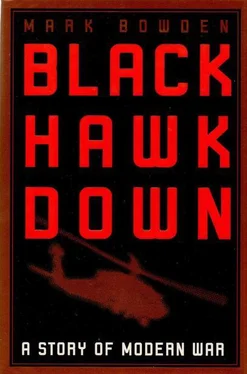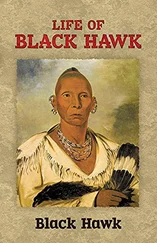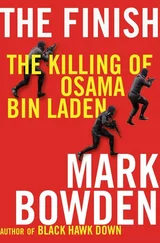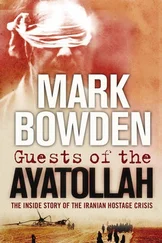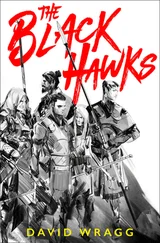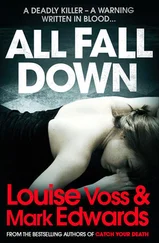Mark Bowden - Black Hawk Down
Здесь есть возможность читать онлайн «Mark Bowden - Black Hawk Down» весь текст электронной книги совершенно бесплатно (целиком полную версию без сокращений). В некоторых случаях можно слушать аудио, скачать через торрент в формате fb2 и присутствует краткое содержание. Город: New York, Год выпуска: 1999, ISBN: 1999, Издательство: Atlantic Monthly Press, Жанр: nonf_military, на английском языке. Описание произведения, (предисловие) а так же отзывы посетителей доступны на портале библиотеки ЛибКат.
- Название:Black Hawk Down
- Автор:
- Издательство:Atlantic Monthly Press
- Жанр:
- Год:1999
- Город:New York
- ISBN:978-0871137388
- Рейтинг книги:3 / 5. Голосов: 1
-
Избранное:Добавить в избранное
- Отзывы:
-
Ваша оценка:
- 60
- 1
- 2
- 3
- 4
- 5
Black Hawk Down: краткое содержание, описание и аннотация
Предлагаем к чтению аннотацию, описание, краткое содержание или предисловие (зависит от того, что написал сам автор книги «Black Hawk Down»). Если вы не нашли необходимую информацию о книге — напишите в комментариях, мы постараемся отыскать её.
Black Hawk Down — читать онлайн бесплатно полную книгу (весь текст) целиком
Ниже представлен текст книги, разбитый по страницам. Система сохранения места последней прочитанной страницы, позволяет с удобством читать онлайн бесплатно книгу «Black Hawk Down», без необходимости каждый раз заново искать на чём Вы остановились. Поставьте закладку, и сможете в любой момент перейти на страницу, на которой закончили чтение.
Интервал:
Закладка:
Perino couldn’t tell what Goodale was doing.
“Where are you hit?” he asked.
“Right in the ass.”
Goodale dropped the LAW.
Perino left Goodale with a Commando medic and moved on across the intersection. Goodale lay back on the dirt as the medic looked him over.
“You got tagged. You’re all right, though. No problem,” the medic said.
Goodale had the same feeling he used to get in a football game when he got injured. They carried you off the field and you were done. He yanked off his helmet, then saw an RPG fly past no more than six feet in front of him and explode with a stupendous wallop about 20 feet away. He put his helmet back on. The game was most definitely not over.
“We need to get off this street,” the medic said.
He dragged Goodale into a small courtyard, and several boys hopped in with them. Goodale asked one of them to help him reach his canteen, which the medic had taken off to work on him. The boy fished it out of Goodale’s butt pack and discovered a bullet hole clean through it from the same round that had passed through his body. Goodale decided he would keep the canteen as a souvenir.
Capt. Steele and a large contingent of Rangers were the last to make the turn onto Freedom Road. Steele got a radio call from Perino.
“Captain, I’ve got another man hit.”
“Pick him up and keep moving,” Steele said.
The captain was struggling to maintain a semblance of order. He needed to consolidate his Rangers into a single force. Time was essential. Steele had been told the ground convoy would probably reach the crash site before he and his men did. He did not yet know the convoy was lost and being riddled with gunfire. Assuming that the convoy would arrive at any minute, Steele was concerned. He had about 60 young Rangers to account for—and only a vague idea where they all were. He was pondering all this while on his belly in the dirt, his broad face nearly in the sand.
The captain and Sgt. Chris Atwater, Steele’s radio operator, were massive men, and they were both trying to take cover behind a tree trunk about a foot wide. In front of them, the last team of boys was moving into the intersection.
Just then one of the boys, Sgt. Fillmore, went limp. His little hockey helmet jerked up and blood came spouting out of his head. He hit the ground, dead.
The boy behind Fillmore grabbed him to pull him back into a narrow alley a few steps away. He, too, was hit—in the neck. A third team member helped the wounded soldier pull Fillmore into the alley.
For the first time that day, Steele felt the gravity of their predicament hit fully home.
CHAPTER 21
A Shared Quest: Punish the Invaders
December 6, 1997
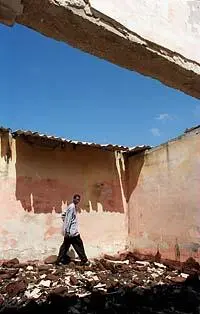
WHEN THE AMERICAN helicopters opened fire on Kassim Sheik Mohamoud’s garage in southern Mogadishu, two of his employees were killed.
Ismail Ahmed was a 30-year-old mechanic, and Ahmad Sheik was a 40-year-old accountant and one of Kassim’s right-hand men. Somalian militiamen were hiding inside the garage compound, so Kassim knew they might be bombed. When the shooting started, the beefy businessman had quickly run to the Digfer Hospital to hide. He figured the Americans would not shoot at a hospital.
He stayed there two hours. It sounded as if the whole city were exploding with gunfire. As dusk approached his men brought him news of the two deaths, and because their Islamic faith called for them to bury the dead before sundown, Kassim left the hospital and returned to his garage to lead a burial detail.
He set off for Trabuna Cemetery with three of his men and the bodies of Ismail Ahmad and Ahmad Sheik.
Mogadishu was in turmoil. Buses had stopped running, and all of the major streets were blocked. American helicopters were shooting at anything that moved in the southern portion of the city, so many of the wounded could not be taken to hospitals. Wails of grief and anger rose from many homes, and angry crowds had formed in a broad ring around Cliff Wolcott’s Blackhawk, the first of two helicopters that crashed. People swarmed through the streets, seeking vengeance. They wanted to punish the invaders.
Hours earlier, Ali Hassan Mohamed had run to the front door of his family’s hamburger and candy shop when the helicopters came down and the shooting started. He was a student, a tall and slender teenager with prominent cheekbones and a sparse goatee. He studied English and business in the mornings, and manned the store in the afternoons just up from the Olympic Hotel.
The front door was diagonal across Hawlwadig Road from the house of Mohamed Hassan Awale, which was the target building where the Rangers were attacking. Peering out his doorway, Ali saw Rangers coming down on ropes. They were big men who wore body armor and strapped their weapons to their chests and painted their faces black and green to look more fierce. They were shooting as soon as they hit the ground. There were also Somalis shooting at them.
Then a helicopter had come low and blasted streams of fire from a gun on its side. Ali’s youngest brother, Abdulahi Hassan Mohamed, fell dead by the gate to the family’s house, bleeding from the head. He was 15.
Ali ran. People were scrambling everywhere. The streets were crowded with terrified women and children, and there were dead people and dead animals. He saw a woman running naked, waving her arms and screaming. Above was the din of the helicopters, and all around was the crisp popping of gunfire. Out in the streets were militiamen with megaphones. They were shouting, “Kasoobaxa guryaha oo iska celsa cadowga!” (“Come out and defend your homes!”)
Ali belonged to a neighborhood militia organized to protect their shops from bandits. He ran up behind the Olympic Hotel and then doubled back up across Hawlwadig Road to the house of his friend Ahmed, where his AK-47 was hidden. Carrying the gun now, he ran back down behind the hotel, through all the chaos, and retraced his route back to his shop.
Hiding behind the building, he fired his first shots at the Rangers on the corner. He was joined by some of his neighborhood friends, who were all carrying their weapons. When the first helicopter crashed, they moved north, ducking behind cars and buildings. Ali would jump out and spray bullets toward the Rangers, then run for cover. None of them were experienced fighters.
His friend Adan Warsawe was hit in the stomach and knocked flat on his back. Ali helped carry him to cover. He felt afraid but very angry. Who were these men who came to his home spreading death?
WORD THAT THERE WAS big trouble in the city had spread quickly through the Somalian staff at the U.S. Embassy compound in southwestern Mogadishu. Abdikarim Mohamud worked as a secretary for one of the American companies providing support services to the international military force under the United Nations command. This U.N. job was the first chance he had had to use his fluent English.
Like most of his countrymen, Abdikarim had been hopeful about the United Nations when the humanitarian mission started. But when the Rangers came, the attacks began on his Habr Gidr clan and its leader, Gen. Mohamed Farrah Aidid, and every week there was a mounting toll of Somalian dead and injured. He saw it as an unwarranted assault on his country. On July 12, the day of the Abdi Qeybdid House attack, when missiles fired from U.S. helicopters had killed dozens of moderate clan leaders, he had seen victims of the bombing who were brought to the U.S. Embassy compound. The Somalian men, elders of Abdikarim’s clan, were bloody and dazed and in need of a doctor. The Americans photographed them, interrogated them and put them in jail. Abdikarim kept his job but with an added purpose—he became the eyes and ears for his clan.
Читать дальшеИнтервал:
Закладка:
Похожие книги на «Black Hawk Down»
Представляем Вашему вниманию похожие книги на «Black Hawk Down» списком для выбора. Мы отобрали схожую по названию и смыслу литературу в надежде предоставить читателям больше вариантов отыскать новые, интересные, ещё непрочитанные произведения.
Обсуждение, отзывы о книге «Black Hawk Down» и просто собственные мнения читателей. Оставьте ваши комментарии, напишите, что Вы думаете о произведении, его смысле или главных героях. Укажите что конкретно понравилось, а что нет, и почему Вы так считаете.
